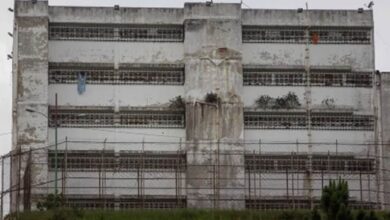The unification of Taiwan and China is inevitable
Listen this article
This 2019 began with explosive statements between Beijing and Taipei on the future of the Taiwanese and their sovereignty

While the Chinese government is calling for reunification, the Taiwanese government demands respect for its sovereignty. Xi Jinging seeks the reunification of one China
The first Wednesday of 2019 was full of tensions on account of the Chinese-Taiwanese situation.
Leer en español: La unificación de Taiwán y China es inevitable
Well, according to the Washington Post , the president of the People's Republic of China (Jinping) declared that the reunification of the island of Formosa with the central government of Beijing will be inevitable; He also did not rule out a military intervention to achieve this goal.
This same newspaper portrayed the words of the agent in question:
"If Taiwan submits to the Chinese government, its population would enjoy a lasting peace and its own system of government under the model "one nation, two systems ", as is the case of Hong Kong, after the British ex-colony reunified. more than two decades".
Apparently, the central government of China is not willing to allow an alleged independence of the inhabitants of the island of Formosa, and for this uses both strength and incentives.
For example, CNN, explained that Jinping is not willing to give up any part of its territory referring to Taiwan and Sinkiang, and will go to the end to defend it. However, he also stated that he would respect Taipei's culture, religion, society, and form of government.
Xi Jinping has called on Taiwan to reject independence and embrace "peaceful reunification" with China https://t.co/PRAgHSB43s pic.twitter.com/cT9nSySnyn
— CNN (@CNN) 2 janvier 2019
Taipei and it's speech in the new year
The escalation between these two territories occurred when Tsai Ing-wen, president of Taiwan, asked Continental China for respect for the designs of her people. CNN portrayed her words: "face the reality of the existence of the Republic of China … respect the commitment of the 23 million people of Taiwan with freedom and democracy."
The president of that island is not going through its best moment of popularity. A few months ago, Ing-wen had to renounce the presidency of his own party (DPP), Democratic Progressive Party, for the defeat he suffered in the last departmental elections.
Although, together with this, it is to be noted that this particular governmental situation does not affect the will of the Taiwanese people for their independence.
Also read: North Korea and South Korea: looking for peace
Latin America as the last bastion of Taipei
Historically, Latin America (whether because of its affinity with the United States or its self-determination) has always been an invaluable ally for the Taiwanese, but this panorama has gradually been blurred, thanks to the Chinese power.
For the German newspaper Deustche Welle, Taipei is losing too much influence in the southern cone. In the last two years has lost Costa Rica (2017), Panama (2017), Dominican Republic (2018) and El Salvador (2018) as strategic allies.
For this European newspaper, this is due to the economic and diplomatic power that Beijing has, since, to do business or receive international cooperation from the Chinese giant, the People's Republic of China must be recognized as the only China that exists.
Finally, the Russian newspaper Sputniknews, warns that Taiwan alone has only official acceptance of Paraguay in South America, and small islands in the Caribbean.
LatinAmerican Post | Miguel Diaz
Translated from "La unificación de Taiwán y China es inevitable"





